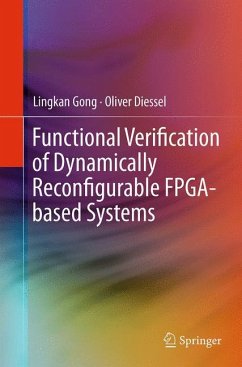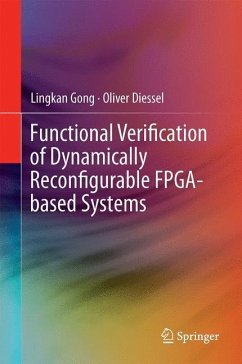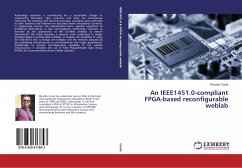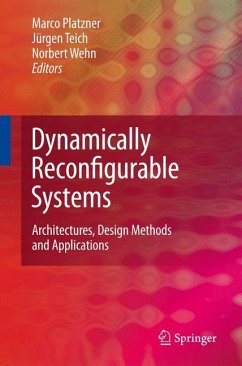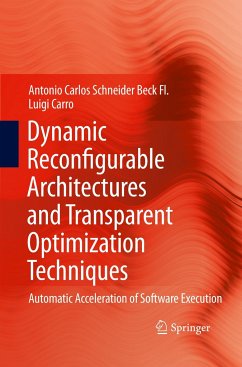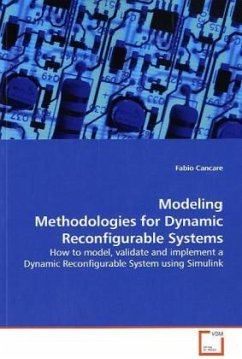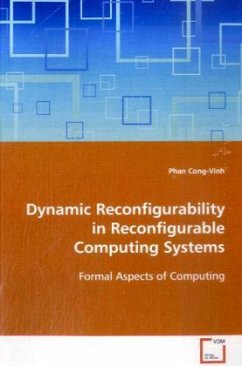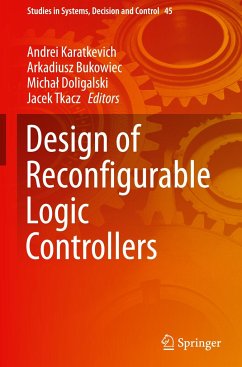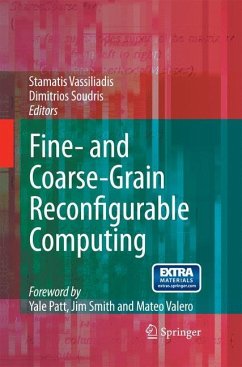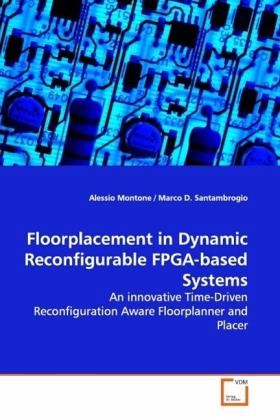
Floorplacement in Dynamic Reconfigurable FPGA-based Systems
An innovative Time-Driven Reconfiguration Aware Floorplanner and Placer
Versandkostenfrei!
Versandfertig in 6-10 Tagen
32,99 €
inkl. MwSt.

PAYBACK Punkte
16 °P sammeln!
Nowadays one of the most important design style forVery Large Scale Intergrated (VLSI) circuits isrepresented by Field Programmable Gate Arrays (FPGA).Since their introduction in the early 90s, FPGAsprovided new challenges to the existing VLSI designautomation techniques.FPGAs, due to their internal architecture, requirenew techniques (or improvement to the existing ones)for each step of the design ow. The oorplanningautomation for FPGAs is a current research topic, inorder to face the new challenges provided by FPGAs.FPGAs presents two new aspects with respect toclassical VLSI design automati...
Nowadays one of the most important design style for
Very Large Scale Intergrated (VLSI) circuits is
represented by Field Programmable Gate Arrays (FPGA).
Since their introduction in the early 90s, FPGAs
provided new challenges to the existing VLSI design
automation techniques.
FPGAs, due to their internal architecture, require
new techniques (or improvement to the existing ones)
for each step of the design ow. The oorplanning
automation for FPGAs is a current research topic, in
order to face the new challenges provided by FPGAs.
FPGAs presents two new aspects with respect to
classical VLSI design automation techniques: Resource
Heterogeneity and Reconfigurability.
This book focuses on the problem of nding an area
assignment for each module, i.e. nd an area where it
has to be con gured. Aim of this book is to provide a
formalization of the problem and an approach (divided
in three algorithms) to solve such problems. The
innovative contribution of this book consists in
facing area assignment problem taking concurrently
into account FPGAs heterogeneity and recon guration
limits. Furthermore the proposed approach takes into
account inter-module communication issues.
Very Large Scale Intergrated (VLSI) circuits is
represented by Field Programmable Gate Arrays (FPGA).
Since their introduction in the early 90s, FPGAs
provided new challenges to the existing VLSI design
automation techniques.
FPGAs, due to their internal architecture, require
new techniques (or improvement to the existing ones)
for each step of the design ow. The oorplanning
automation for FPGAs is a current research topic, in
order to face the new challenges provided by FPGAs.
FPGAs presents two new aspects with respect to
classical VLSI design automation techniques: Resource
Heterogeneity and Reconfigurability.
This book focuses on the problem of nding an area
assignment for each module, i.e. nd an area where it
has to be con gured. Aim of this book is to provide a
formalization of the problem and an approach (divided
in three algorithms) to solve such problems. The
innovative contribution of this book consists in
facing area assignment problem taking concurrently
into account FPGAs heterogeneity and recon guration
limits. Furthermore the proposed approach takes into
account inter-module communication issues.




